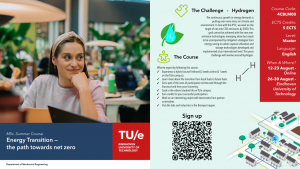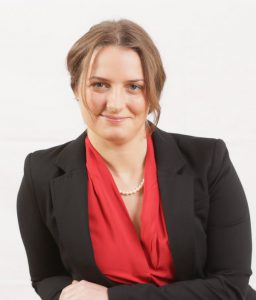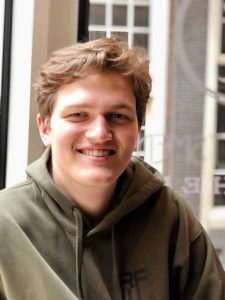The continuous growth in energy demands is putting ever more stress on climate and environment. Aligned with the IPCC, everyone needs to be committed and work hard to achieve the target of net zero carbon emissions by 2050. This objective cannot be met solely through the emergence of new zero-emission technologies but needs to be accompanied by mitigation strategies from energy saving to carbon capture utilization and storage technologies developed and implemented at an international level.
In the course 4CBLM00 Energy transition – “the path towards net zero”, students learn about the most recent developments in Energy technology research and the application/implementation in society. This year’s focus will revolve around Hydrogen. Students will work together in an interdisciplinary and international team with students from EuroTeQ partner universities to develop an innovative, practical, and scientifically sound solution related to this energy technology.
Students from the Eindhoven University of Technology can subscribe here.
Students from the Technical University of Denmark can subscribe here.
Students from other universities can subscribe here.

Course description
Course structure
The course will take place from 12-30 August 2024. In the first two weeks of the course, there will be online academic conference talks given by Energy Technology experts from industry and universities. The last week of the course will take place at the TU/e campus and the students will get the opportunity to visit the labs and industries related to hydrogen in the Brainport region. All teaching/learning activities have mandatory attendance. If this creates issues, please send an e-mail to summer.course.energy.transition.4cblm00@tue.nl.
A study guide and a detailed preliminary schedule of the course will be published in the near future.
About Challenge-Based Learning
The course 4CBLM00 Energy transition – “the path towards net zero” will be taught by Challenge-Based Learning (CBL). CBL is an educational concept where students are (more) free to shape their own education. In CBL, you work in a hands-on and collaborative setting on solving societal challenges.
While working on these challenges, you have the flexibility to choose the approach and the kind of solution that is most motivating and interesting for you. This has impact on the responsibilities of both students and teachers and on the format of education as well. For instance:
- Teachers may not be experts on the topic you choose to work on. Therefore, the traditional role of the teacher (as the person who has all the answers on the course topic) does not fit the concept of CBL.
Instead, the teacher becomes a coach that based on experience in research and problem solving is able to guide you in the process. Teachers help you gathering relevant resources/information to understand the given challenge, facilitate you in developing a solution and guide you in the process of working in a (multidisciplinary) group. - Students gain freedom but simultaneously are (more) responsible for their own learning: setting and meeting learning goals within the context of the challenge, arrange their own learning activities in addition to that offered by the course (such as conducting research, plan group interactions, performing modelling/experiments etc.) and – in some cases – also participate in the assessment of peers.
Learning Goals
After successful completion of this course students are expected to be able to:
- Plan and execute projects on Energy technology in an international project team.
- Use individual knowledge and expertise in an interdisciplinary and international team to develop an innovative, practical and scientifically sound solution related to energy technology.
- Understand more about the group dynamics and cultural aspects in e.g. communication in an international project team.
- Build/Use computational tools and databases to draw conclusions regarding the topic of the project.
- Communicate the results of aforementioned projects to audiences with different background levels.
- Reflect on the most recent developments in Energy technology research and the (lack of) application/implementation in society.
Preparation
To make sure groups have enough time to dive into the (technical) content of your respective projects, we ask you to prepare a couple of things before the start of the summer school. These things are related to the workshops in which we define the project topic and group composition.
You can find the information for the preparation of the course here.
Lecturers & Contact
For any questions related to course content, schedule, assessments, administration, travel, etc. send an e-mail to summer.course.energy.transition.4cblm00@tue.nl.
 Dr. Maja Rücker
Dr. Maja Rücker
Lecturer
m.rucker@tue.nl

Bas Dekker
Teaching Assistant
b.dekker@student.tue.nl